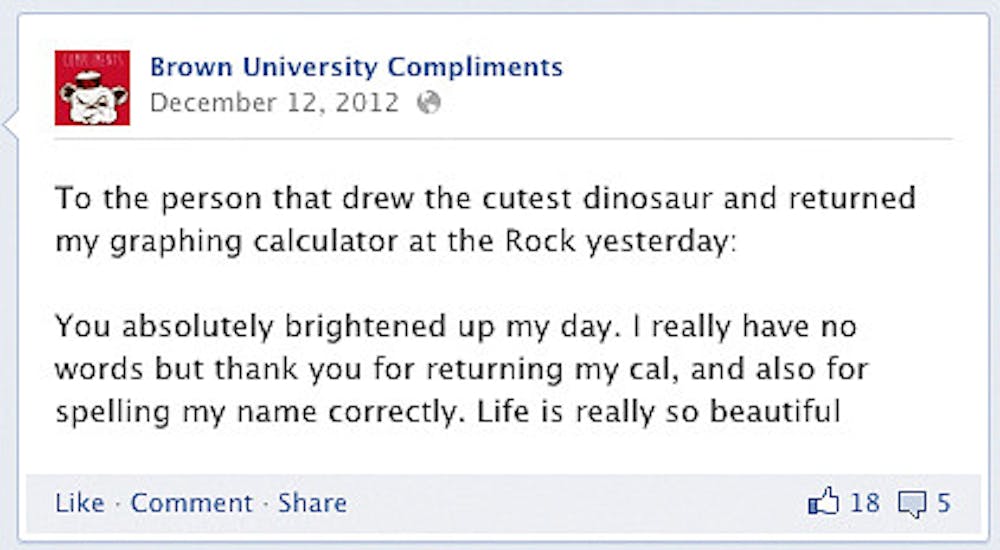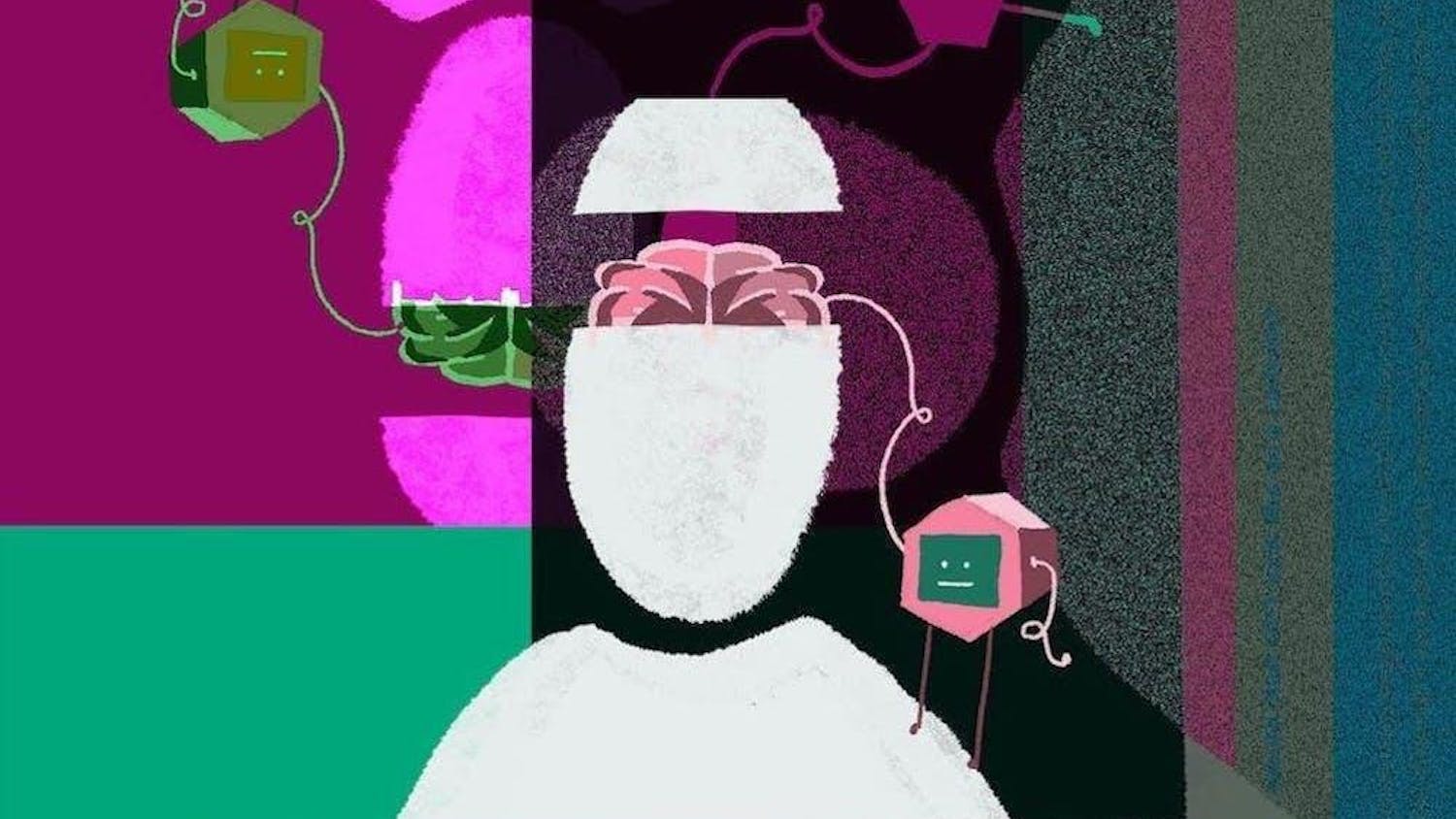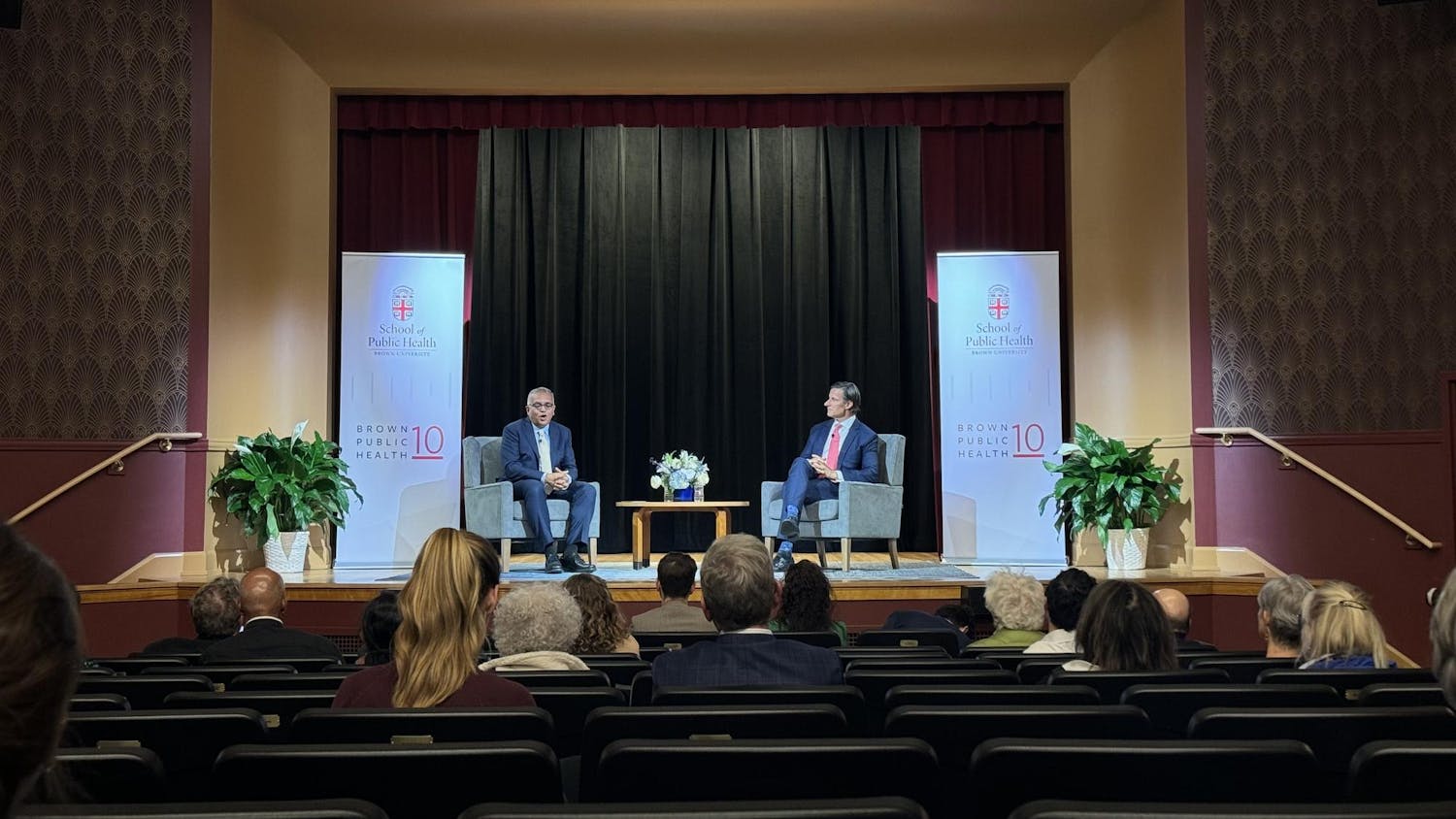“Thank you for being you.” Such a sentence may be found once a year inside a Valentine’s Day card — or every day, on Brown University Compliments, a Facebook page that was started by BlogDailyHerald just before Thanksgiving 2012.
The page, which provides a forum for Brown students to submit anonymous compliments to each other, has over 2,100 likes and several hundred compliments just three months after its founding.
“I really could never have imagined how big it got,” said William Janover ’15, one of the page’s founders and moderators and managing editor of BlogDailyHerald.
Shortly after Brown University Compliments was founded, it was joined by Brown Admirers, another Facebook page for students to express their positive thoughts about each other, albeit with a more romantic twist and not necessarily anonymously. The page’s moderators declined to comment because they did not want to reveal their identities.
Facebook pages like Brown University Compliments and Brown Admirers have been springing up at schools all over the country, including Washington University in St. Louis and Yale. The first of these pages was started at Queens University in Canada last September, Time reported last November.
Giving compliments feels good and people have a natural tendency to be kind to each other, said Fiery Cushman, assistant professor of cognitive, linguistic and psychological sciences.
Evidence has shown that children as young as one year old enjoy being generous, Cushman said. “If you put them in a situation where they can give someone a helping hand, they spontaneously do it. It doesn’t matter if you reward them. In fact, if you reward them, they actually do it less.”
“We have a nice little warm glow when we do something nice for others,” said Bertram Malle, professor of cognitive, linguistic and psychological sciences. But people don’t shower each other with compliments, Malle said. “If you do it too much, it loses some of its power. It becomes a little tool of ingratiating people or indicating that you want something from them.”
The anonymity of Brown University Compliments is one of the page’s defining features, because it eliminates the possibility of complimenting because of ulterior motives, Malle said. Complimenters do not expect to get anything in return, allowing them to express their “pure, honest, positive view(s),” he added.
The anonymity may also explain the page’s growing popularity. “Every time someone gets one of these gifts, they feel compelled to do something for somebody else,” Cushman said. If you compliment someone face-to-face, they are likely to compliment you back. But in an anonymous situation, the person praised does not know whom to compliment in return.
“So you could imagine, because you don’t know whom to reciprocate to, it actually grows and grows and grows the network of people who get involved,” Cushman said.
But some students expressed concern about relying on social media to communicate feelings about others.
“It’s a good way to make people feel good, but it’s also a cowardly way to tell someone you like them or tell someone you think they’re cool,” said Ramya Mahalingam ’14.
“We don’t seem to be very good at saying things to people’s faces,” said Rebecca Kagan ’13. She added that the number of “likes” a compliment receives makes the page feel like a “popularity contest.”
Pages like Brown University Compliments run the risk of unintentionally upsetting those who don’t receive compliments by making them feel excluded, Malle said. “That’s the flipside of our need to belong and our high sensitivity and responsiveness to positive social interactions,” he added.
“But just because somebody doesn’t post something online, doesn’t mean that there’s nobody out there who has anything nice to say about you,” said Joanna Lustig ’13, who is writing a thesis on social media and reputation.
Amy Gonzales, assistant professor of telecommunications at Indiana University, said the negative aspects of social media and online interactions dominate popular media and research. “In reality, they actually take up a lot less space. I’m sure there are a lot of sweet things happening like (those) happening at Brown, but that stuff doesn’t hit the media and by extension isn’t the focus of research,” Gonzales said. She compared Brown University Compliments to a “flash mob support group.”
That is exactly what Janover and his co-founders wanted, Janover said. They hoped to create a nice space that he said was the “opposite of all these really negative spaces that the Internet has a reputation for.”

ADVERTISEMENT




